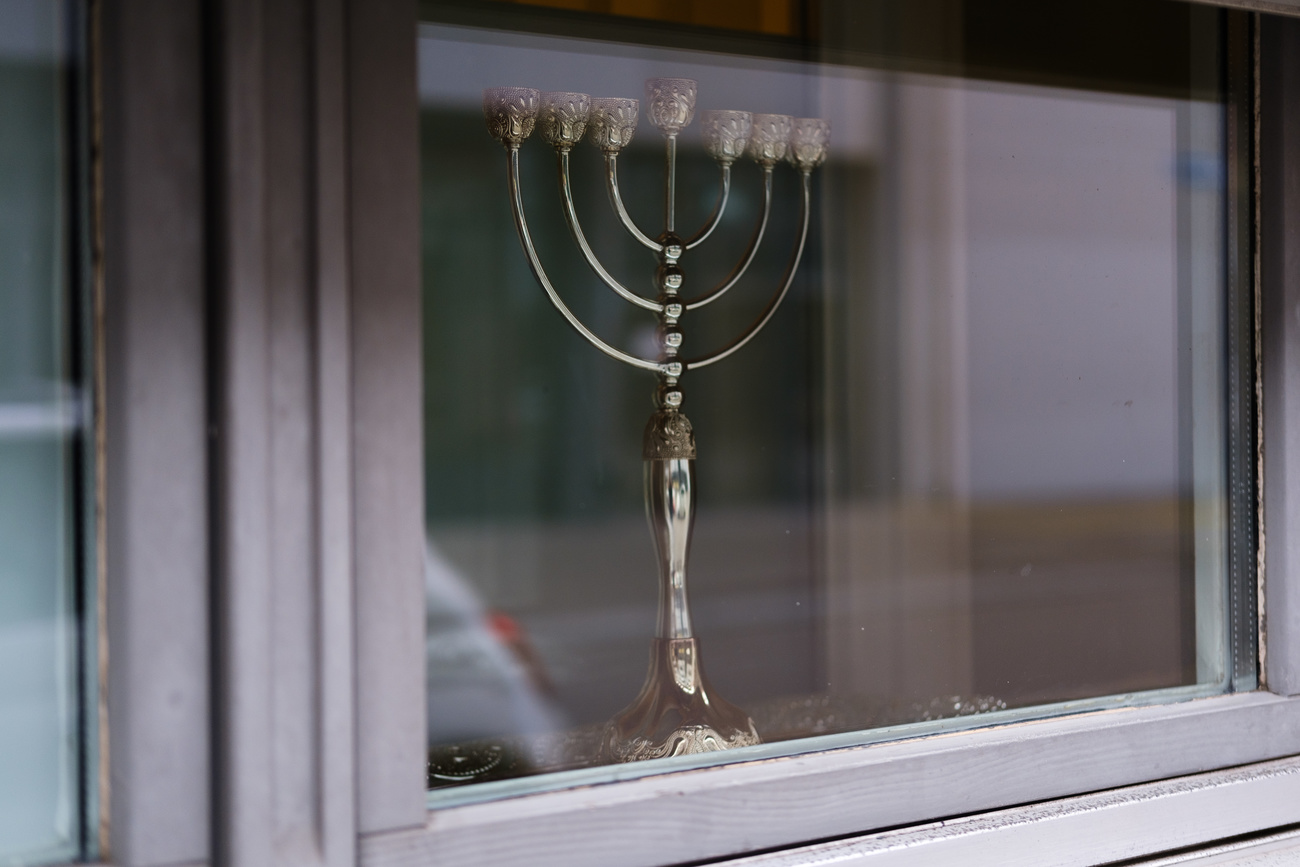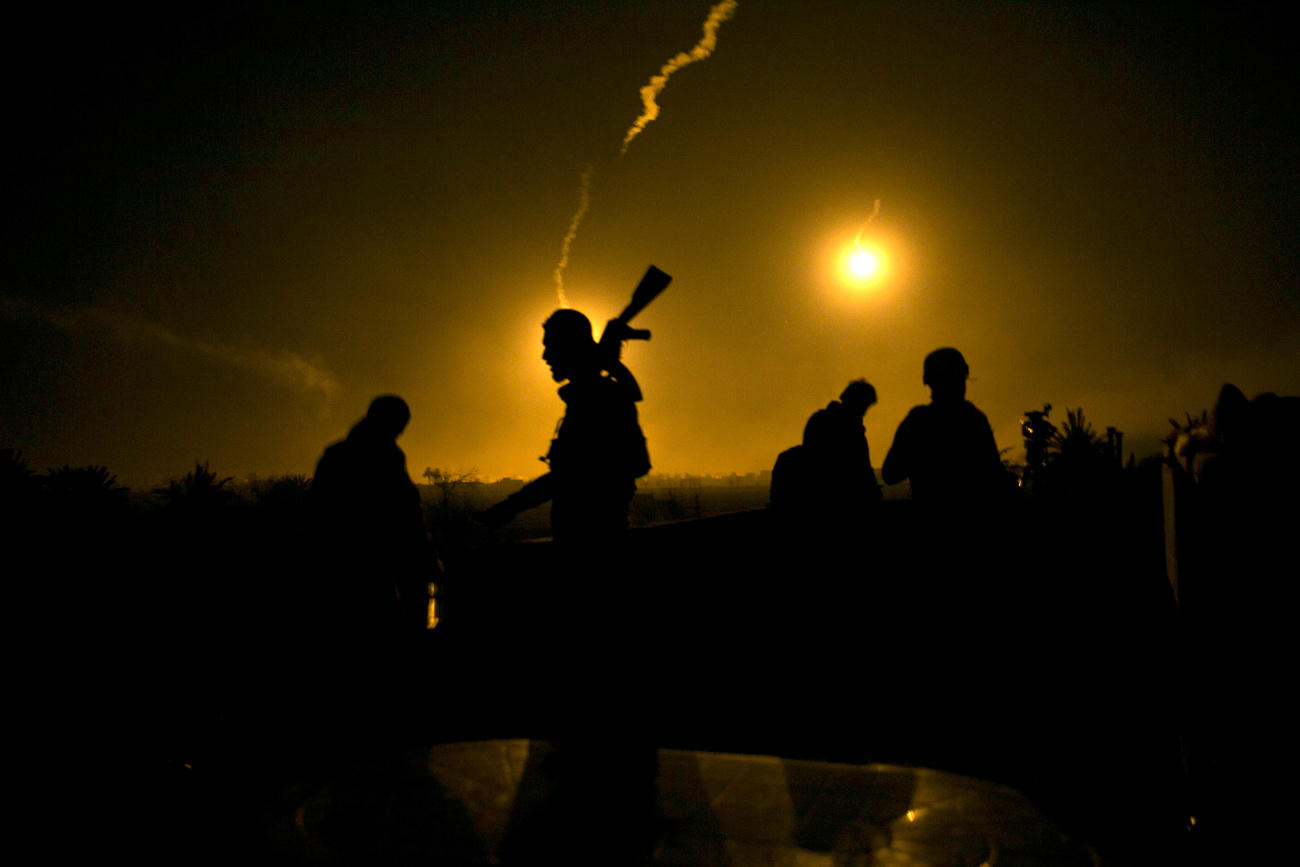
Debates about deportation and image follow Zurich anti-Semitic attack

The stabbing of an Orthodox Jewish man comes amid growing concerns about anti-Semitism in Switzerland. Some politicians now want a harsh response. Here’s what’s known about the case so far.
The attacker: a teenager in a “global war”
Last Saturday at around 9.30pm, a 50-year-old Orthodox Jewish man was stabbed on the street near the centre of Switzerland’s biggest city, Zurich. The alleged attacker, a 15-year-old with Tunisian origins – he became a Swiss citizen in 2011 – was arrested at the scene after passers-by chased him and pinned him down until police arrived. The victim’s condition, initially life-threatening, has since stabilised.
On Monday, police released more details: notably, they confirmed the authenticity of an online video in which the teenager declared allegiance to the Islamic State (IS) and called for a “global war against Jews”; he also said he wanted to “storm a synagogue” and “kill unbelievers on the street”. Nothing suggested he’d had any previous contact with the victim, who was targeted simply for being visibly Jewish. Zurich’s cantonal security director Mario Fehr labelled the incident as both terrorist and anti-Semitic.

More
Anti-Semitism in Switzerland
Reactions: increased security and shows of solidarity
Rhetorical and concrete reactions were not long coming. Police boosted its presence at Jewish-related institutions in Zurich, with Fehr pledging to “do everything to restore a feeling of security” for the community in the city. Switzerland’s 18,000-strong Jewish population also reviewed its own security arrangements around the country, the Swiss Federation of Jewish Communities (SIG) said on Sunday.
Condemnation of the attack also came from all quarters: Defence Minister Viola Amherd, who holds the rotating Swiss presidency this year, tweeted her solidarity with Switzerland’s Jewish citizens; various Muslim groups criticised the crime unreservedly; and on Sunday, several hundred people held a solidarity march and vigil in Zurich. Above all, there has been talk of the attack as a watershed moment marking a new level of anti-Semitism; Jonathan Kreutner of the SIG said it was not just an attack on a Jew but on tolerant Swiss society as a whole.
How much of a turning point is it?
Pinning down what defines a watershed moment is difficult. But what’s clear is that violent anti-Semitism is rare in Switzerland. The Tages-Anzeiger newspaper wrote that the attack was one of the worst incidents in the country since a Jew was killed by Nazi sympathisers in Payerne, canton Vaud – in 1942. As such, the paper spoke to several Jewish people on Monday who reported feeling more insecure about going out in public in Zurich.
Anti-Semitic cases in general have, however, risen in recent years, and especially since the Israeli-Palestinian war: last year, 68% more cases were reported in the French-speaking part of Switzerland, with over half happening after the October 7 Hamas attack. And like elsewhere in Europe, the war has sparked hefty debates and demonstrations in Swiss cities – Mario Fehr previously claimedExternal link that pro-Palestinian events were increasingly being “hijacked” by extremists. This all comes after the Covid-19 pandemic fuelled a rise in anti-Semitic conspiracy theories, particularly online.
As for Islamic violence, this is also not unheard of in Switzerland, but rare. Recent high-profile cases include jihadist stabbings in the towns of Morges and Lugano, both of which followed the “lone-wolf” pattern – Switzerland has so far been spared the type of bigger attacks which some neighbouring countries have suffered over the past decade. Authorities have, however, been kept busy by the question of what do with citizens who go to fight for the Islamic State in the Middle East (see below). The Federal Intelligence Services meanwhile said in December that it continued to judge the terrorist threat as “heightened”.

More
What should be done with foreigners who joined Islamic State?
Politicians discuss action plans and reputational risks
Such warnings couldn’t prevent the attack on Saturday, however, and there has been criticism of authorities for not doing enough. The Intercommunity Coordination Against Anti-Semitism and Defamation (CICAD), which already levelled such criticism last year, repeated this week that there was a “lack of reaction by authorities, politicians and some media”. A writer at the Tages-Anzeiger said the Zurich incident was a “wake-up callExternal link” and that parliamentarians in Bern should, for example, drop their reluctance to ban anti-Semitic symbols like Nazi salutes.
That said, politicians haven’t been completely inactive. In 2022, the government agreed to boost funding for the security of religious minorities, including for measures around synagogues and mosques. Last month, the executive also declared its support for an “action planExternal link” to tackle racism and anti-Semitism. The plan, which is to be debated in parliament again on Thursday, would involve boosting existing anti-racism bodies; it would also place a focus on countering online anti-Semitism.
Parliament this week also accepted a postulateExternal link calling on government to look into the “foreign policy implications of a rise in anti-Semitism”. The postulate, drawn up in November, is worried about the foreign stoking and financing of anti-Semitism in Switzerland. It also says rising anti-Semitic incidents could negatively impact Switzerland’s image. While parliament unanimously approved the idea, the government opposed it: tackling anti-Semitism is an interior policy issue, it said, and “nothing currently suggests that Switzerland is at the centre of foreign criticism regarding anti-Semitism”.

More
Anti-Semitism in the Swiss left – still a taboo?
Citizenship wrangles and the age factor
Meanwhile, even before the Zurich suspect has been tried, debates have turned to what to do with him – with one idea focusing on stripping him of his citizenship. “In principle possible, but happening only rarely”, such a step can be taken if a convicted individual has damaged Swiss interests or reputation – for example by being involved in terrorism, the Swiss News Agency Keystone-SDA writes. Migration authorities have taken this step five times in recent years, mainly in cases of people who went to fight for IS. One major condition is that the person needs to be a dual citizen; a person cannot be left stateless.
But while the dual-citizenship condition is reportedly fulfilled in the case of the alleged attacker in Zurich, another feature is more perplexing: his age. As a 15-year-old, “Ahmed the Beast” (his self-conferred nickname) risks a maximum prison sentence of just one year. As for stripping him of his citizenship, while Zurich security director Mario Fehr thinks this is possible (and desirable), a spokesperson for the migration authorities told the Neue Zürcher Zeitung (NZZ) that the alleged attacker’s age made the case a novelty: it’s unclear how a judge would rule regarding the citizenship issue, the spokesperson said.
Other politicians from the left have opposed any deportation talk. Rather than “exporting the problem”, Social Democrat Sibylle Marti told the NZZ, the aim should be to figure out how a young man could be driven to such a crime, and how such cases could be prevented.
CICAD director Johanne Gurfinkiel similarly called for more work to be done in schools, with specific modules to tackle anti-Semitism and other social problems. Criminality expert Dirk Baier, who said he was “shocked” by the age of the attacker, also told the Tages-Anzeiger about recurring reports of Muslim students developing and sharing anti-Semitic ideas in schools – but more data is needed on the extent of this, he said.
Meanwhile, if people are worried about their own teenage son or daughter, Baier said the main thing is to keep channels of dialogue open – not to try to control their online habits. As for signs that things could be heading for radicalisation, he had one example: “people who manage to completely suppress the fact that over 1,000 people were killed by Hamas in one day can, in my opinion, be dangerous”.
Edited by Marc Leutenegger/ts
Do you want to read our weekly top stories? Subscribe here.

In compliance with the JTI standards
More: SWI swissinfo.ch certified by the Journalism Trust Initiative


























You can find an overview of ongoing debates with our journalists here . Please join us!
If you want to start a conversation about a topic raised in this article or want to report factual errors, email us at english@swissinfo.ch.